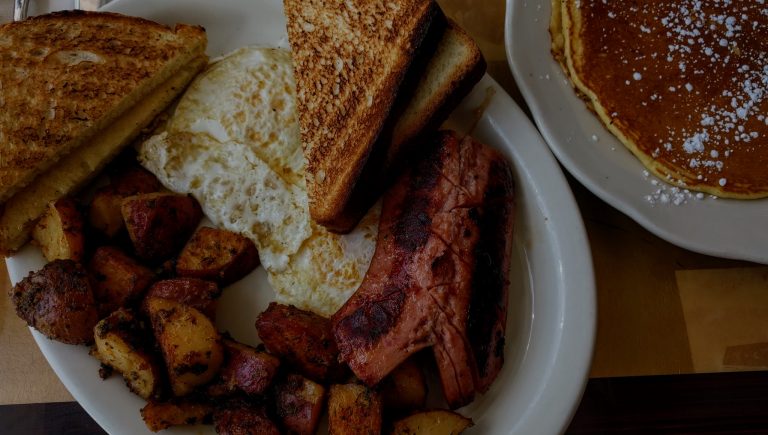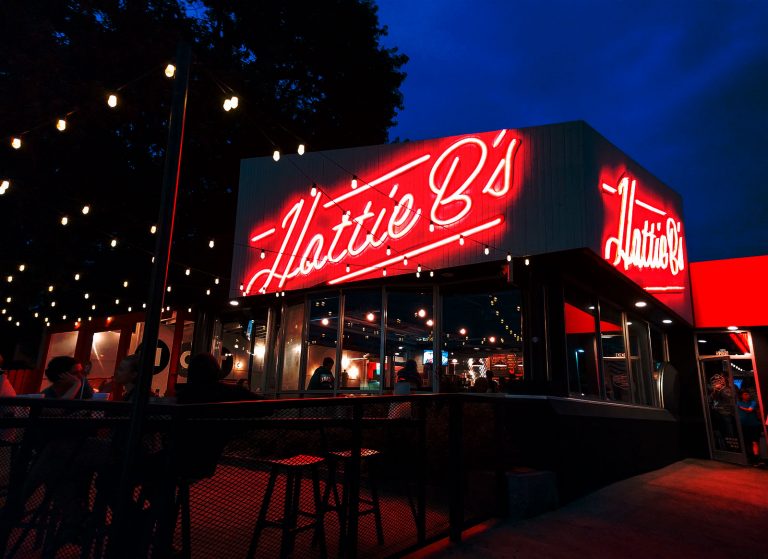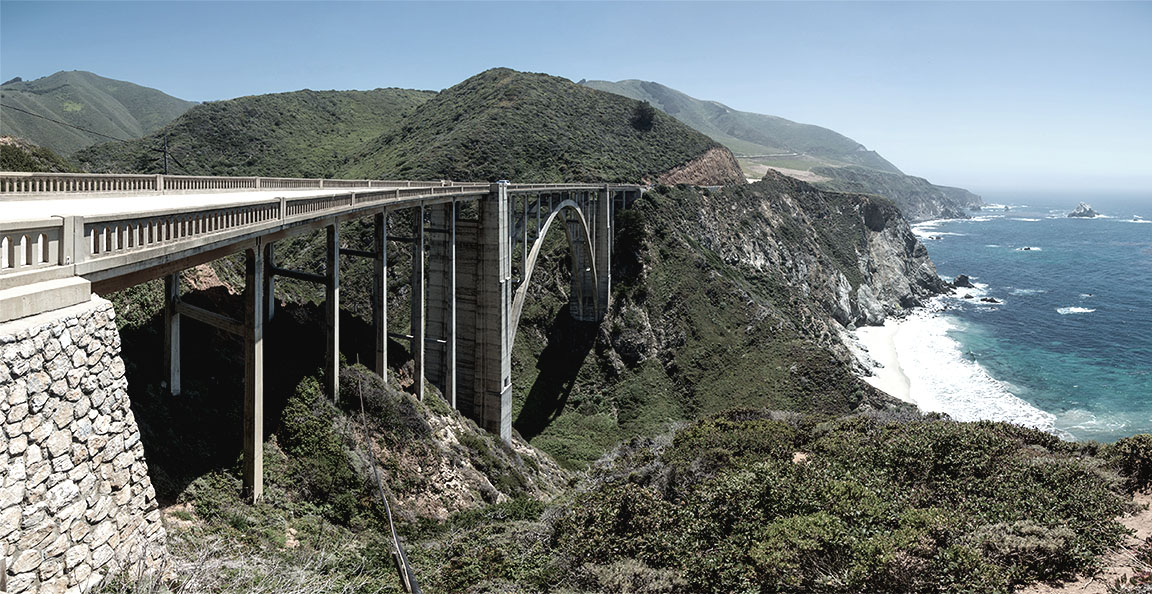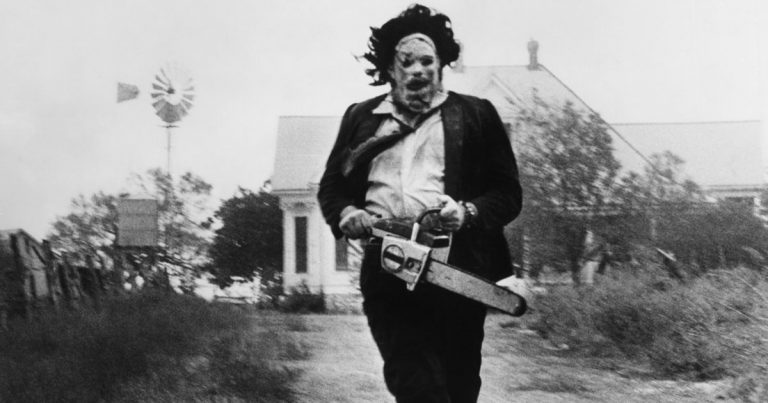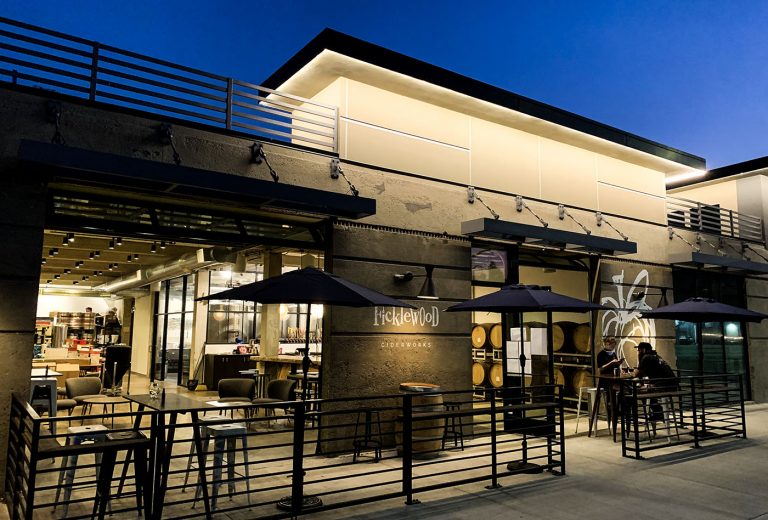As the Thomas Fire Raged California Brewers Stood Strong
It took only twenty days for the Thomas fire to chew and claw a path of ash across southern California and become the largest wildfire in state history.
In its wake, the monster left homes and businesses in smoking piles of rubble. Firefighters fought day and night in long fourteen hour shifts and through the holidays to kill the fire, charring the remaining vegetation or chopping down trees to stem the spread.
Only burning for a few days, the unseasonably strong Santa Ana winds kicked up the fire’s embers and sent them skyward.
“It had already been established for close to a week before it got to us” said Mark Matthews of Island Brewing Company in Carpinteria. They were only a few miles from the blaze.
Island Brewing is a big part of a small community. They make a wide gamut of beers for all palettes, pumping out beers in downtown Carpinteria since 2001. Only being a stones throw from the Pacific coastline doesn’t hurt either.
Matthews is in charge of social media among other things for the brewery, experiencing the monster as it crawled toward town first hand.
“It looked pretty dicey…when the foothills had been transformed essentially into erupting volcanoes for pretty much as far as you could see.”
The Thomas fire wasn’t the only fire that ravaged southern California at the beginning of December. There was also the Skirball Fire which had sparked from an illegal cooking fire near the 405.
The winds increased. The nation took notice. Flames erupted across social media.
Pictures of the burning hills were splashed all over the news and Twitter. Major highways looked plucked straight from a scene out of San Andreas or Independence Day as morning rush hour traffic crawled beneath the orange glow of a mountain on fire.
Instagram and Facebook erupted, telling folks to turn around. “The 405 is on fire.”
As the Skirball fire marched across the county, animals were forced out of the woods and into residential areas. Local news outlets asked residents to set out water and bring pets inside as the fire forced feral animals through populated neighborhoods.
Then there was the Lilac Fire, another monster blaze that burned north of San Diego. It was smaller than the others and authorities are still unsure how it started. But the damage was severe. And heartbreaking.
San Luis Rey Downs, a thoroughbred facility that houses racehorses was in the path of the quick moving wildfire. While owners and trainers scrambled to evacuate the horses, the flames bore down on them.

News cameras and social media showed horrific videos of stables in flames and horses running wild in a panicked attempt to flee. Trainers ran into the inferno and pulled the animals away only to have them run frightened back to the stables seeking shelter, succumbing to the flames moments later.
By the time the fire passed, forty-seven horses were killed with many more unaccounted for. Owners could do nothing but watch the reports hopelessly until evacuation orders were lifted.
All three fires started to decimate the southern part of the state, working in tandem to turn the already dry land into tinder. Firefighters waged war for weeks before the Lilac and Skirball fires were reigned in.
Through it all, the Thomas fire raged on.
Jill Siple and her husband Darren were thrust into a front row seat to the Thomas fire atop Rincon Mountain at the brewery they co-own.
Smoke Mountain Brewery is a tiny brewery surrounded by 150 acres of avocado trees, Meyer lemons and macadamia nuts.
The Siples don’t brew a lot of beer, enough to fill around a hundred bottles for their beer club members and a couple of kegs they send out to local taps they favor, but the beers they do make are unique hyper local brews using their own ingredients. Beers like a Coconut Macadamia Milk Stout made from macadamias they grew on property or a Blueberry Golden Ale that used Thai flowers to color the beer a deep purple for Independence Day.
They also make wine, grow their own barley and hops and have plans to expand into an Estate brewery in the next few years.
Except the ranch was in the sights of the Thomas blaze.
“The fire literally came through our property,” Jill Siple said thinking back to the night the fire swept through, narrowly missing their structures.
“From our mountain, we watched the fire blaze about twenty miles away as it crept into Ojai and Ventura. We were worried, but based on the distance we never thought the fire would make its way to our property”.
The Thomas fire had other plans. The winds didn’t die and the blaze was hungry.
“That evening the fire was breaching the top of our mountain” Siple said. “The fire had moved much faster than we thought due to the high winds. It was insane.”
They dialed 911 but the fire crews were already stretched thin. All they could do was continue to call and hope that someone would get to their mountain. Acres of avocados and nuts were at stake. The majority of Ventura county was on fire.
“We kept calling 911 and eventually eight fire trucks were up here.” said Siple.
Relief had come but the fire didn’t stop.
Jill and Darren gave the firefighters their only request. With close to five years of blood, sweat and tears poured into the brewery and winery, they asked for the fire crews to save it.
“Please don’t let it burn to the ground.”
“The fire started making its way down the front of the mountain where most of the homes and structures are” Siple stated. “So that night we evacuated down to Carpinteria.”
Closer to the ocean, the ash was falling.
“At one point it was coming down and making the sound that rain makes on my patio roof.” Matthews said. Island Brewing Company is less than a mile from the beach but the winds still roared down to the coast, bringing with it smoke and debris.
“Many in the community left for clearer air.” he said.
For both Matthews at Island Beer Company and the Siple’s up at Smoke Mountain, the wildfire was unlike anything they’ve seen.
During the thirty plus years Jill’s husband Darren Siple had lived on ranch, it was the first fire to make it to the mountain. For Matthews, near the coast, it was a different beast entirely.
“This was fundamentally different in both how close the fire was and also how fast it had spread. No one thought it would make it from Santa Paula to Ventura and then for it to leg out and head to Carpinteria and beyond was pretty incredible.” said Matthews.
“It’s still incredible.”
Dawn of the following day the fire continued its rampage. Along the coast in Carpinteria, Island Brewing was dealing with smoke and ash falls.
“We closed for two days. It was pretty hectic.” said Matthews.
The ash and smoke were inescapable, causing serious health issues. Santa Barbara county started to hand out face masks for those those who didn’t or couldn’t evacuate. The brewery was prepared too. For several days after the worst of the blaze, face masks were handed out alongside pints.
“Everyone became something of an expert.” Matthews noted, explaining that only certain masks, the N95 mask, would work. “Anything else lets in fine particles.” It would take a few more weeks before the ash and smoke would subside enough for residents to doff their masks and breathe fresh air.
Up on Rincon Mountain the Siple’s were in the trenches with the fire crews.
In the 70s and 80s, Darren’s father installed a complex water system to irrigate the mountaintop ranch. It came in handy for the firefighters but not without a few hiccups.
“The next day, even though the fire was still active on our property, [Darren] came back up and helped the firefighters with supplying water.” said Siple.
With the extra draw on the irrigation system combined with the fire working its way across the ranch, water kept going out along certain areas on the mountain. Darren was on the job.
“Irrigation pipes and pipes for homes were melting all over the mountain” said Siple. “Darren and his brother, Shaun, are in charge of our water systems and are the only people who know how to fix those pipes. Although most people were evacuated, if we wanted to continue supplying water we needed to be there. It was quite the experience.”
The firetrucks became a fixture for the following weeks as the Thomas fire bounced around, threatening to jump back over to the Siple’s mountain. Winds kept pushing the blaze around.
“I never felt my life was in danger” Siple said. “There was a fire truck at my house, a fire truck at the brewery and a fire truck slightly in front of our house. We were surrounded by a fire team.”
For the Siple’s the danger was over thanks to the quick acting fire crews. But the work was only just beginning.
“After the fire, a good chunk of our avocado crop and trees are burned.” said Siple. “And most shrub areas on our property are completely burnt. It’s sad to see.” Ash covered areas of the brewery and winery, all which needed power washed. But beyond a little cleanup the buildings were still standing and the Siples were alive. “We’re incredibly thankful that our structures are still standing.”

Mark Matthews also felt the fire crews were quick to act.
“This fire was different than the Napa and Sonoma fires for us. It had already been established for close to a week before it got to us.” Matthews said citing how quickly the fires in October spread through California’s wine country.
“We had tons of firefighters and planes and resources on hand.”
The October fires were different. In the south the winds are the Santa Anas. In the north, they are called the Diablo winds.
Like the Thomas fire, high winds were to blame. Hurtling through the canyons as they flee to the sea, the winds stirred up the infernos in Sonoma and Napa valley that would eventually destroy thousands of structures, claiming over eighty lives. Wineries were left as ashen piles with blackened vines and cars were hunks of charred metal.
The damage was done in a hurry, taking less than a couple of weeks to nearly ruin the country’s wine industry. The firefighters worked just as hard and just as quickly, containing the nearly twenty fires through four counties before the end of the month.
Some places skirted danger by just feet. Fremont Diner, a beloved roadside cafe with authentic Nashville hot chicken was saved. Miles north, the ROY Estate Winery wasn’t so lucky. It was one of sixteen other wineries that were destroyed in the blaze.
Social media was aflame as well, with the hashtag #sonomapride erupting across Twitter, Instagram and Facebook. People were banding together.
It was enough of a spark to bring California’s brewing community together.

Started by Russian River’s Natalie and Vinnie Cilurzo in conjunction with the King Ridge Foundation, Sonoma Pride was a beer and fundraiser rolled into one.
Russian River Brewing Company in Santa Rosa has quite a bit of notoriety. Famous for both Pliny the Elder and Pliny the Younger, hard to get beers that hop heads and beer snobs search high and low for, Russian River was a loud member of a close community. One that could get things done.
As the fires quickly consumed the community, the Cilurzo’s sprung into action. Donations were accepted directly to the King Ridge Foundation, and through the Sonoma Pride website. Russian River also sold special “line-jumping” tickets to their Pliny the Younger release for 2018. The tickets were gone in no time.
But that wasn’t enough. Russian River extended the invitation to collaborate. Brewers across the state jumped at the chance. Beers sold under the “Sonoma Pride” moniker would have their profits donated as well.
By the end of November, before the fires in southern California were even embers, they had raised hundreds of thousands of dollars for the cause. And the donations keep coming, the number inching closer to a million after only two months of donations.
All told over sixty-three breweries joined the cause to help raise money by either donating a portion of their profits or brewing a beer to sell in the name of Sonoma Pride.
Even brewers as far south as San Diego joined in to help their brewing brethren, a world away at the time.
Bagby Beer Company, a brewhouse located in Oceanside also brewed their own version of Sonoma Pride in October to help raise funds for firefighters and families. Weeks later it is still one of their big sellers in the tap room.
“It is really, really good.” owner Dande Bagby said. “It’s our 6th best selling house beer.” It was poured over five hundred times but Bagby agrees it might have been too far south from the Sonoma fires for it to be a big seller.
That was until the Lilac fire.
Bagby Beer was on the edges of the blaze as it roared through. The wildfires were suddenly at their door instead of far to the north.
Everyone – be safe. If you’re evacuating and you need a spot, you are welcome here. Free WiFi and plenty of space. Dogs welcome. #lilacfire pic.twitter.com/auHL669UV6
— Bagby Beer Company (@bagbybeer) December 7, 2017
For hours into the night Bagby Beer tweeted and retweeted as the news of the Lilac fire’s ferocity broke. Horses were trapped, people were in danger. They opened their doors and parking lots to anyone who needed a place to go.
Through their tweets they helped coordinate their followers to help find evacuation centers and to save what animals they could. Cars and horse trailers lined their parking lots the next day.
Other nearby brewers, like Wavelength Brewing in Vista followed suit tweeting words of encouragement while trying to help evacuees find shelter.
Brewers were coming together for their communities in the face of the flames. Echos of #sonomapride in southern California.
Although the fires have been tamed, the threat has not been extinguished.
“We’re really worried about landslides,” Jill Siple noted. “This was already an issue for us on the mountain and now it’s an even bigger concern.”
Last year seasonal wildfires worked through the Bay area, chewing up brush along the coastlines of Big Sur. When the winter rains finally swept in, the fire stricken hillsides no longer had vegetation to hold the soil in place. It all washed out to sea and with it roads and property.
The grounds surrounding Smoke Mountain Brewery are susceptible with the brush and smaller trees having been burned away by the Thomas fire. Yet their trees still stand and the rains haven’t come.

For some southern California residents the new year will be a year of regrowth and rebuilding. The winds are dying down. Firefighters are slowly returning home worn down but ultimately heroes.
“The timing of the fire during the holiday season has been disorienting.” Matthews said. “The biggest concern now will be getting it out completely. There is a cautious optimism the worst is over.”
Again brewers are banding together, offering what they can, from supplies to canned water, for those in need. Some just need a place to sit and have a hot meal or cold beer after a day of toil and work.
“We wanted to be open and have people commune, commiserate, strategize and come together during this time.” he said, mentioning how tight knit Carpinteria is. But his words could just as easily be true for the craft beer community in general.
“People needed a beer or two.”
With clearer air it looks like that cautious optimism will finally get a foothold.
Updated 1/3/2018: Clarified numbers regarding Sonoma Pride donations. Donations are at nearly $700,000 as of this writing with more donations coming in.


